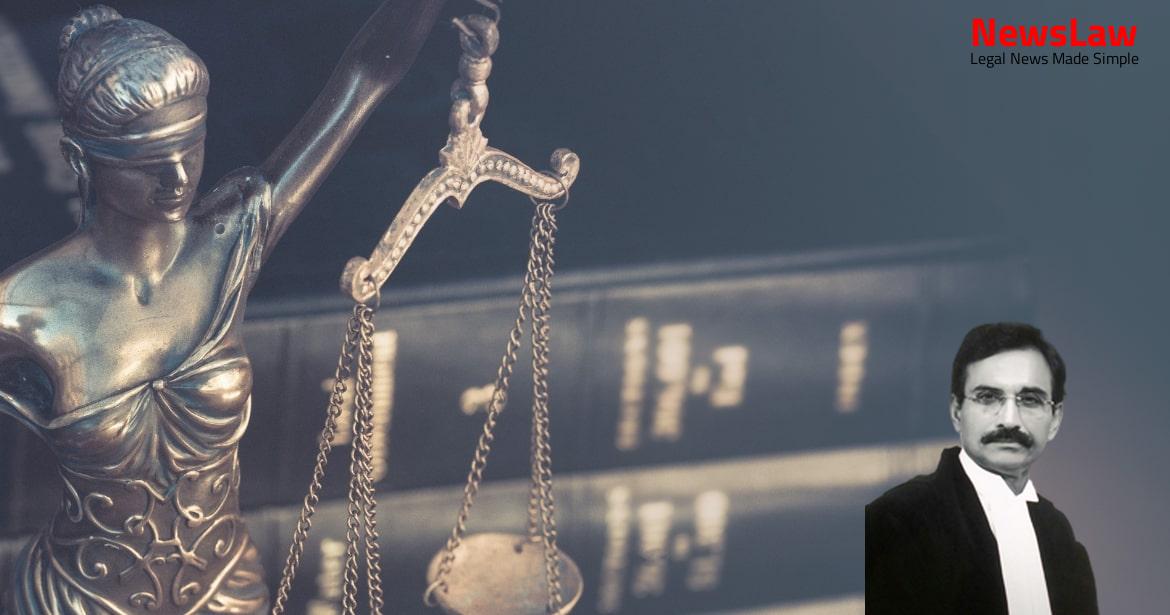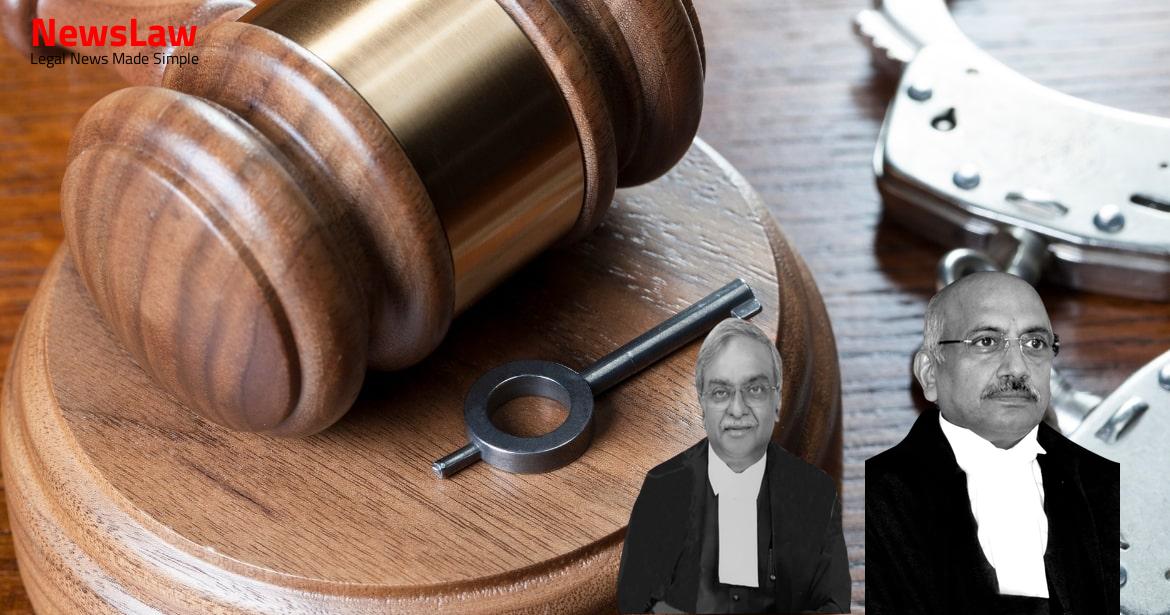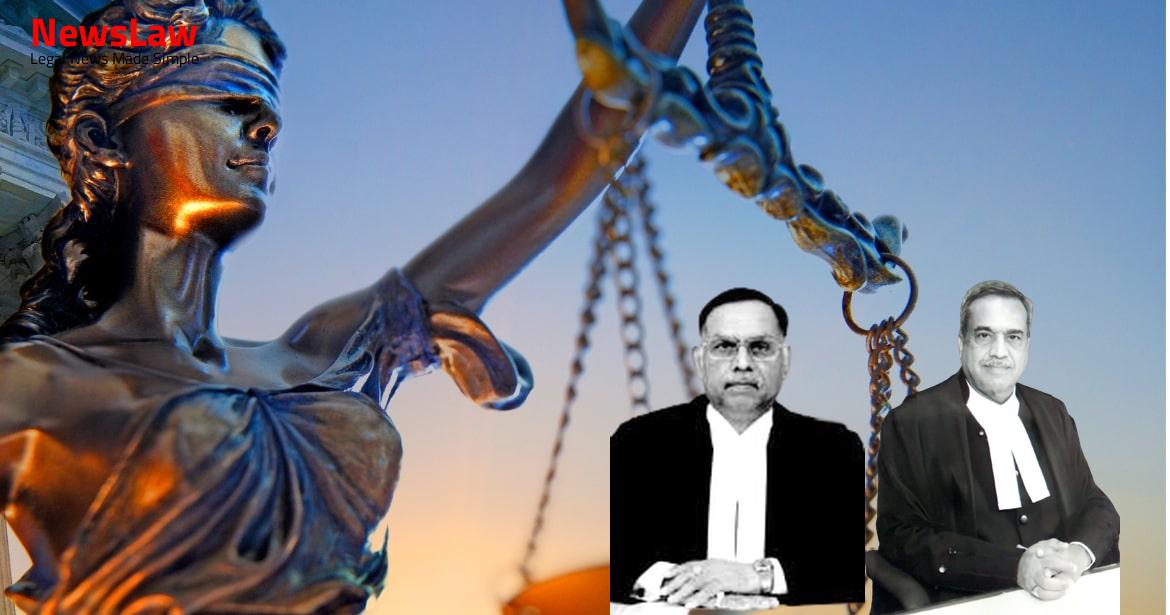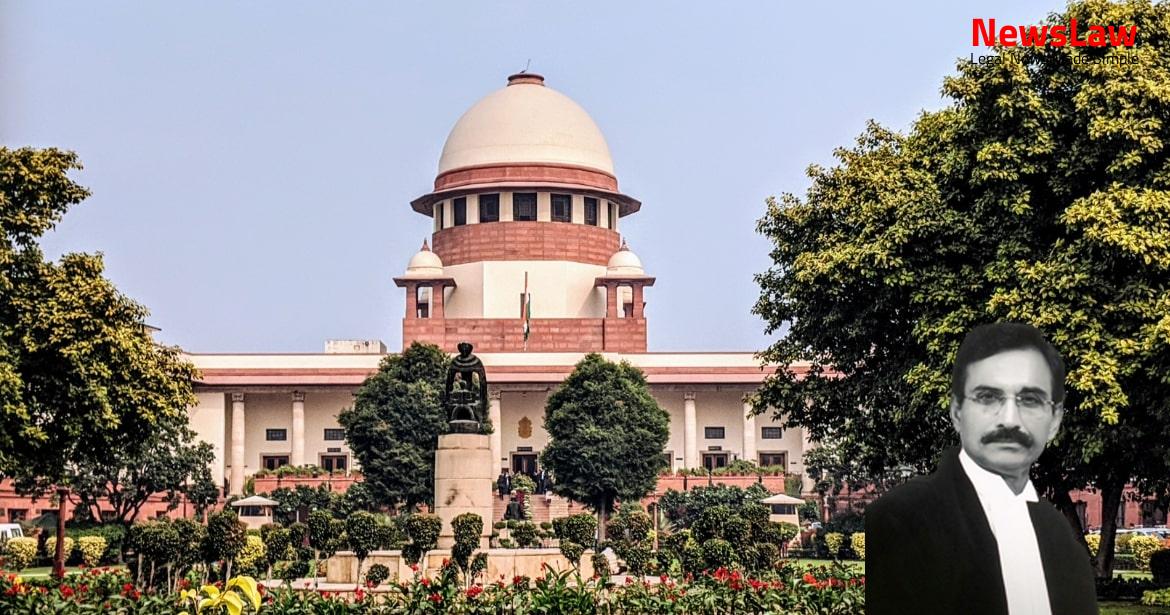Explore the intricate legal analysis by the court regarding the interpretation of statutory bail under Section 167(2), CrPC. The case delves into various precedents and conflicting views to provide clarity on the application of this crucial provision. Stay tuned to unravel the complexities of statutory bail in the legal realm.
Facts
- The High Court granted statutory bail to Respondent Nos. 1 and 2 on the grounds that cognizance was not taken before the expiry of 60 days.
- The Sessions Judge initially dismissed the bail applications stating the complaint was filed before the 60-day period expired.
- Respondent Nos. 1 and 2 did not argue for statutory bail before the Special Court.
- The trial court disposed of the bail applications following directions from the High Court in a separate matter.
- The High Court failed to consider the trial court’s order dismissing the statutory bail applications.
- The appeal questions whether an accused is entitled to statutory bail under Section 167(2), CrPC.
- The accused were previously granted and then surrendered bail, leading to a series of court orders.
- The SFIO challenges the High Court’s bail order in this appeal.
- The investigation into the Adarsh Group was initiated by the Central Government.
- The judicial custody of Respondent Nos. 1 and 2 was extended multiple times.
- Statutory bail under Section 167(2), CrPC can only be granted if the investigation is incomplete within the specified period.
- The High Court granted bail to Respondent Nos. 1 and 2 because the trial court did not take cognizance of the complaint within the 60-day period, granting them statutory bail as a right.
- Intervenor’s application for statutory bail was rejected by the trial court and upheld by the High Court, with further applications set to be listed on 21.05.2019.
- Special Leave Petition (Criminal) Diary No 12089 of 2021 is pending before this Court, related to the case.
- Another order dated 12.03.2021 of this Court tagged special leave petitions with Criminal Appeal Nos. 701-702 of 2020, referred to a larger bench.
- Inspectors appointed by the Director, SFIO were conducting the investigation, and Respondent Nos. 1 and 2 filed for statutory bail under Section 167(2) of the CrPC on 20.05.2019.
- Respondent Nos. 1 and 2 were arrested following approval by the Director, SFIO on 10.12.2018.
- The scheme of the CrPC involves filing the final report/complaint under Section 173(2) upon completion of investigation.
- Respondent Nos. 1 and 2 filed regular bail applications before the High Court on 03.05.2019.
- The issue of the right of an accused to claim statutory bail if cognizance is not taken within the prescribed period is a common theme in various petitions related to the case.
- Respondent Nos. 1 and 2 are directors of Adarsh Group of Companies and LLPs, accused of offences under various sections of the IPC.
- Complaint under Section 439(2) of the Companies Act, 2013 was filed on 18.05.2019, before the 60-day remand period expired. The Special Court scheduled the matter for considering summoning of the accused.
Also Read: Reversal of High Court’s Decision on Auction Sale Confirmation
Arguments
- Mr. Mukul Rohatgi, Senior Counsel for the Intervenor, argued a conflict in the interpretation of Section 167(2), CrPC.
- He referenced the case of Madar Sheikh and Bhikamchand Jain to highlight differing views on statutory bail.
- Explanation II was also brought up in the context of proving the accused’s production before the Magistrate.
- The Appellant contended that the judgment in Bhikamchand Jain supported their position on statutory bail.
- It was noted that the High Court’s decision was deemed contrary to the law as per Suresh Kumar Bhikamchand Jain v. State of Maharashtra & Anr.
- Respondent Nos. 1 and 2 argued in favor of the High Court’s grant of statutory bail due to a delay in taking cognizance within the specified period under Section 167(2).
- The core issue discussed was addressing the failure to complete investigation under Section 167(2) of the CrPC.
- Accused has the right to seek statutory bail under the proviso to Section 167(2) until the court takes cognizance.
- Maximum period of detention under Section 167, CrPC is 60 days unless bail cannot be furnished.
- Detention can be extended only if the accused is unable to furnish bail.
- Judgment in Mohamed Iqbal Madar Sheikh & Ors. v. State of Maharashtra explained the ruling in Sanjay Dutt v. State regarding the exercise of the right under Section 167(2), CrPC.
Also Read: Interest Compensation Dispute in Property Demolition Case
Analysis
- Once the challan has been filed, the grant of bail must be considered based on the merits of the case under bail provisions.
- A larger bench decision is not required for the issue of the exclusion or inclusion of the date of remand for computing the period under Section 167.
- The judgment analysis of Sanjay Dutt, Madar Sheikh, and M. Ravindran cases were discussed.
- In Madar Sheikh case, the right to statutory bail arises if the charge-sheet is not filed before the statutory period expires.
- On filing the charge-sheet and cognizance being taken, custody is based on orders of remand under other CrPC provisions.
- The High Court’s decision that accused cannot be remanded beyond 60 days under Section 167 is deemed incorrect based on the Bhikamchand Jain case.
- In the Madar Sheikh case, the right to bail is unenforceable after cognizance and charge-sheet submission.
- A plea for default bail should be made if the charge-sheet is not filed within the statutory period.
- The court found that the accused’s right to statutory bail ceases once the charge-sheet is submitted and cognizance is taken.
- The Magistrate has the authority to authorize the detention of the accused in custody for a term not exceeding fifteen days, regardless of jurisdiction over the case.
- If the Magistrate lacks jurisdiction or deems further detention unnecessary, the accused can be forwarded to a Magistrate with appropriate jurisdiction.
- Detention beyond fifteen days can be allowed by the Magistrate if sufficient grounds are present, but total detention periods have limits based on the severity of the offense being investigated.
- No Magistrate can authorize detention exceeding ninety days for offenses punishable with death, life imprisonment, or a minimum of ten years, or sixty days for other offenses.
- The accused must be produced in person before the Magistrate for detention authorization, and subsequent extensions can be granted on personal or electronic video linkage appearance.
- Magistrates of the second class without special empowerment by the High Court cannot authorize detention in police custody.
- Even after the specified period limits, the accused must stay in custody unless they provide bail.
- In the event of investigation not being completed within the prescribed period, the accused acquires an indefeasible right to be granted bail if bail is offered.
- Different views were taken in Sanjay Dutt, Madar Sheikh, and M. Ravindran cases regarding the enforceability of the indefeasible right accruing to the accused.
- Sanjay Dutt case held that the right is enforceable only prior to the filing of challan.
- Examination of the judgment passed in Bhikamchand Jain case is necessary.
- The petitioner in the case was accused of misappropriation and various other offences.
- The court clarified the different stages in the case to maintain continuity of custody of the accused with a court.
- Filing of a charge-sheet is considered sufficient compliance with the provisions of Section 167, CrPC.
- An accused cannot demand release on default bail under Section 167(2) on the ground that cognizance has not been taken before the expiry of 60 days.
- Cognizance must be taken by the relevant court after the filing of the charge-sheet, even if the application for bail is filed after cognizance has been taken.
- The reference to cognizance does not imply an additional requirement for entitling the accused to default bail.
- Non-filing of the charge-sheet within the statutory period is the sole ground for claiming bail under Section 167(2) of the CrPC.
- The custody of the accused after 60 days remains with the Magistrate until cognizance is taken by the relevant court.
Also Read: Legal Interpretation of Extension of Judicial Member’s Term
Decision
- Appeals were allowed and leave was granted.
- The issue in this case is covered by the judgment in Bhikamchand Jain.
- The High Court’s order dated 31.05.2019 is set aside.
Case Title: SERIOUS FRAUD INVESTIGATION OFFICE Vs. RAHUL MODI (2022 INSC 158)
Case Number: Crl.A. No.-000185-000186 / 2022



